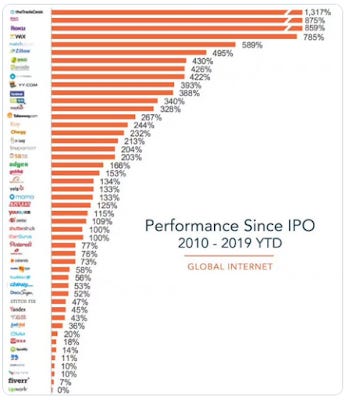When in the course of human events it becomes necessary for one people to dissolve the political bands which have connected them with another and to assume among the powers of the earth, the separate and equal station to which the Laws of Nature and of Nature's God entitle them, a decent respect to the opinions of mankind requires that they should declare the causes which impel them to the separation.
-The Unanimous Declaration of the Thirteen United States of America, JULY 4, 1776
In my last post: An Argument Against The Ban of Bitcoin: Bitcoin Represents a Threat to The Permanent State, Not America, I talked about my prediction for the U.S. if it bans bitcoin. Namely, it will tie our demise to the U.S. dollar.
Ultimately, the post was a declaration of sorts. Like the Declaration of Independence quoted above, it was an attempt to declare the causes which should impel America to separate itself from the dollar and the U.S. central banking authority. And, the tool to bring about the separation is bitcoin.
In 2009, 53 police officers in Afghanistan were paid by a new mobile service
called M-Paisa. This was a pilot program to see if public sector jobs
could be paid with M-Paisa. When the officers received payment they
also noticed a 30% pay raise. Perhaps this was compensation for
participating in the pilot? No. This was the amount the officers should
have been getting all along, but superior officers had been skimming
off of salaries. M-Paisa payments made the police officers very happy,
but the mayors, not so much.
This is a micro example
of what digital payment services can do to eliminate the middle-man and
reduce corruption. Digital currencies have the same impact at the
macro level. Here's a quote from an article in Forbes describing the
impact of M-Pesa on Kenya's economy:
In Kenya,
M-Pesa has been so successful that traditional banks have come to see
it as a serious competitor. At first, these banks sought to limit
M-Pesa by seeking regulations from the Kenyan government, but
increasingly they have begun to offer mobile banking services that
attempt to disrupt M-Pesa’s monopoly of the mobile money market.
In other words, M-Pesa has gained so much traction that the government
is worried because they are losing both power and money, but the end
result is a more balanced economy.
To further support the
theory, one study recently found that "increased access to mobile money
has increased long-term consumption in Kenya and reduced the number of
households in extreme poverty." The study estimates that it lifted 2%
of Kenyan households out of poverty, with the impact being more
pronounced in female-headed households. Women using M-Pesa tended to
move out of agriculture and into business (Science, p. 1288). Mobile Money, the study concludes:
...a service that allows monetary value to be stored on a mobile phone
and sent to other Mobile money has therefore increased the efficiency
of the allocation of consumption over time while allowing a more
efficient allocation of labor, resulting in a meaningful reduction of
poverty in Kenya.
Like toll-booths,
intermediaries (banks, government, corporations) are there to collect
some sort of tax or fee from us, but what happens when we can go from A
to B without intermediaries?
Paradigm Shift: M-Pesa, M-Paisa, MCash, bKash and EasyPaisa
Today almost every household in Kenya uses M-Pesa. It allows anyone
with a mobile phone to transfer money. It also has a financing and
micro-financing service. Started in 2007 by the largest mobile network
operators in Kenya and Tanzania, the operation later expanded to
Afghanistan, South Africa, India, Romania and Albania.
The
growth of the M-Pesa market mirrors bitcoin. The mobile phone market
overall has over 900 million subscribers in Africa and over 3.7 billion
in Asia. M-Pesa isn't the only mobile payment service. There's also
M-Paisa in Afghanistan, Smart in the Philippines, MCash and bKash in
Bangladesh, and EasyPaisa in Pakistan (2009). According to the Global Mobile Systems Association (GMSA) there are now 277 live services across 92 markets (two-thirds of which are low- and middle-income countries). The report goes on to say that:
Registered accounts grew nearly six-fold in the last five years to
more than half a billion in 2016, helped by a growing network of mobile
money agents. In 2016, there were more than 4.3 million registered
agent outlets, of which 2.3 million were active on a monthly basis;
thirty countries now have ten times more active agents than bank
branches, bringing mobile money within reach of millions of unbanked
households.
So what can these experiments tell us
about what we can expect will happen in the United States with more
widespread use of bitcoin?
Poverty & Digital Currency
Bitcoin is much more than just a digital currency (for more on what bitcoin is, please click here).
Likewise, M-Pesa is more than a cell phone service. The two have much
in common, most importantly they cut out the middle-man which is
impacting global economics at the micro- and macro-level.
Scientists are attributing M-Pesa with lifting people out of poverty,
which is something the U.N. is shining a spotlight on. In fact, the U.N.
Special Rapporteur on extreme poverty and human rights has written a
report about extreme poverty in America.
It's hard to imagine
that anyone in the United States, the richest country in the world,
could be living in extreme poverty, but in Alabama 19 of 55 individuals
tested positive for hookworm, a disease which was thought to have been
eradicated in the U.S. by the 1980s.
Hookworm tends to thrive in regions of extreme poverty with poor
sanitation and it is thriving in certain parts of America as well.
The only way for the richest country in the world to be home to
conditions of extreme poverty is for rampant corruption to exist. The
best place to put our collective energy (literally) is not in the hands
of a new set of men and women to be corrupted by the 1% every four
years, but in bitcoin and other related digital currencies in use
around the world (for an example of what blockchain and bitcoin can do,
take a look at what Estonia is doing here).
Final Thoughts: Transfer of Wealth
We are witnessing the largest transfer of wealth in modern history. The
police officer example above is only a glimpse at the potential we
stand to recoup. The current system is a zero-sum game, so what the
uber-wealthy lose will not be lost, but transferred to
its rightful owners through bitcoin and other digital currencies. All
the money that used to go to bribes, government corruption and banks is
now working its way back into the hands of "the people" which is
reducing poverty worldwide.
Kenya's government couldn't shut
M-Pesa down. Likewise, if the US government could forbid the use of
bitcoin, it would have done so already. Bitcoin is more than voting
with your dollars, it's investing in a new world order that brings all
these payment systems together. You can even buy bitcoin with M-Pesa
using LocalBitcoins, a peer-to-peer bitcoin exchange network.
Bitcoin has no nationality. It has no history of debt or corruption. It
has no spoken language. It has no borders. It has no tribe. It is
incapable of war. It is intangible in nature. And, best of all, it
requires no assistance from corruptible minds. It is in the process of
accumulating wealth from national currencies (G5). This is why the price
of bitcoin will continue to rise with the fall of the dollar, pound,
yen and euro.

